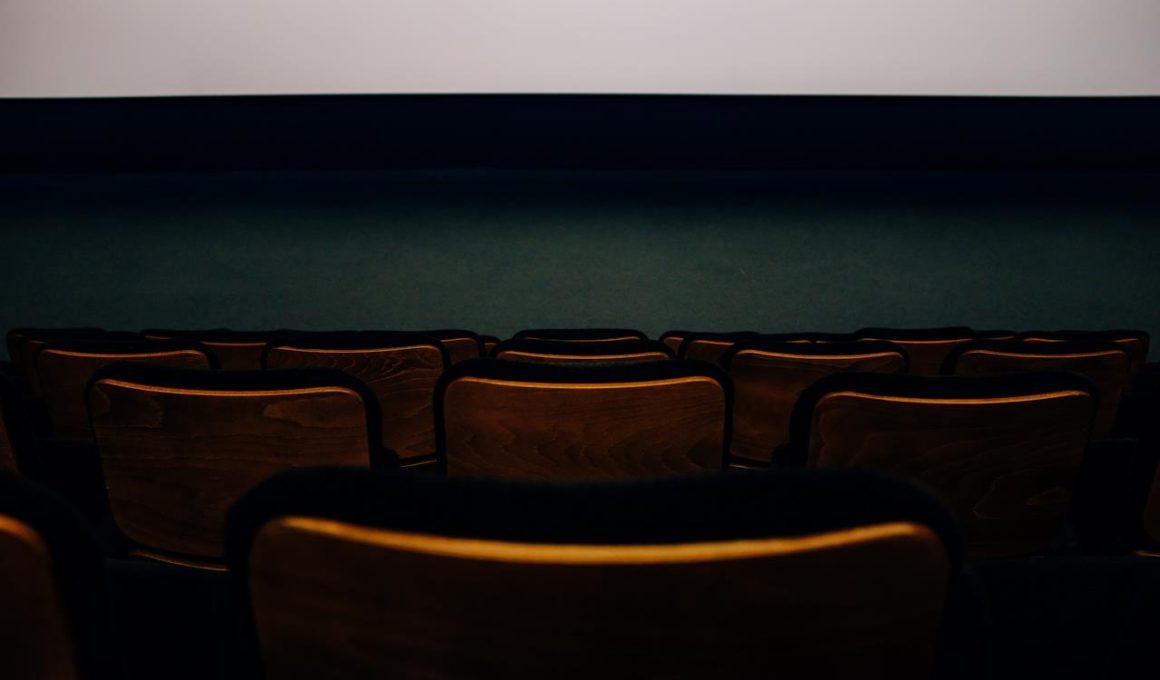Movies are supposed to be a safe haven. However, in our day and age, it is not always safe to be with strangers, even in a movie theater. A movie theater often lacks the necessary security measures to keep people safe. There are no bag checks or body searches. Anyone can walk in with a ticket. Even side doors are often unguarded. The movie theater is considered to be a high-risk environment.
Mask-wearing
California has a history of banning mask-wearing in movie theaters, but it has recently changed its policy. The state’s public health officials said the mask-wearing mandate is temporary until June 15, when they plan to end the color-coded reopening tier system. Public health officials have cited the fact that the state experienced a surge in COVID cases during the winter months, yet Los Angeles currently has some of the lowest COVID rates in the country.
Many movie theaters have begun to implement their own safety protocols. Since the outbreak, most major movie chains have invested in air filtration and cleaning supplies. While the environment in theaters has improved, the number of people able to watch a movie is limited by distancing requirements and seating capacity. AMC, for example, resisted requiring its patrons to wear masks last August, but will implement a policy requiring mask-wearing by June 2020.
Some theaters have followed state mandates and will continue to require mask-wearing by employees. However, some theaters will continue to exceed these limits. Cinemark, for example, has a policy that requires employees to wear face masks. As a result, it is important to check local policies before going to a movie theater. However, in general, movie theaters that don’t require mask-wearing will be fine. Regardless, it is worth checking whether your local theaters follow these guidelines to protect public health.
AMC, Regal, and Cinemark will no longer require full-vaccinated guests to wear masks. According to the CDC guidelines, masks are optional for inoculated people, but strongly recommended for everyone else. Those who aren’t vaccinated, however, should still wear masks, since many theaters are required to make the necessary precautions. These rules also apply to employees of the top movie theater chains.
While New York has eased its mask-wearing policies, other cities have kept their policies strict. For example, some theaters in New York City require that patrons wear masks to see a play, while others still insist that they are necessary to protect themselves. And New York has a strong public health record, and the state’s vaccination rate is high enough to meet the standards. It’s a win-win situation for everyone, and it’s good news for the health of Americans.
Cleanliness
In response to concerns over the cleanliness of movie theaters, the National Association of Theatre Owners (NATO) has revised its recommendations for disinfecting the theaters. It now recommends cleaning theaters once a day, as recommended by the CDC. Most theaters are sticking to their previous cleaning procedures, however. In particular, theaters should disinfect their screens as often as once a day, while the CDC recommends disinfecting screens twice a day.
Cleaning the movie theater is a critical part of the overall cleaning program. Considering the high traffic volume, the presence of food and children, and the general lack of professional cleaning equipment, movie theaters are a veritable petri dish for germs. A good cleaning program for movie theaters should focus on the health of the theater’s occupants. This means that moviegoers should never feel unnecessarily uncomfortable.
Another aspect of clean movie theaters is their bathrooms. You don’t want to sit in a filthy restroom and find that your armrests are covered in sticky residue. The cleaning team should use disinfectants to remove any food stains or spills. They also need to clean the concession equipment after each use. The popcorn machine, snack bar, and beverage dispensers should all be cleaned thoroughly. These areas are vital for the health of patrons.
Many local movie theaters have installed hand-washing stations and added extra time between movies. They also partnered with Clorox, a leading disinfectant, and have implemented a cleaning process with electrostatic disinfectant sprayers and HEPA filter vacuums. However, this doesn’t mean that you shouldn’t wash your hands frequently – try to make a lather that lasts 20 seconds. Some theaters offer complimentary hand-sanitizer for patrons. Fortunately, credit cards are accepted at movie theaters.
Public health
As the number of infections in the US continues to rise, many movie theaters have begun to address the issue of public health. The CDC and state agencies have created guidelines to improve safety in the movie theater industry. Currently, theaters must disinfect their auditoriums between showings and ensure that the seats are 6 feet apart. The Department of Public Health also has general guidelines for operating businesses during a coronavirus pandemic.
To reduce the risk of the outbreak, theaters should require that their patrons wear masks and use hand sanitizer. Boosting immunity by vaccinating children is a smart way to keep the theaters safe. In addition, people should avoid eating at the concession stands, which can be a source of contamination. Most theaters are more controlled than restaurants, so you won’t have to worry about the food you’re eating.
While movie theaters aren’t a perfect place for public health practices, they can help reduce the risk of the COVID-19 pandemic. Using the concept of six-foot social distancing, movie theaters can limit the number of guests in a single theater and space seats in a checkerboard pattern. By doing so, theaters can limit the number of people sitting next to each other. This can reduce transmission risks by spacing people in the same direction, which can also help reduce the spread of the virus.
It is important to limit advertising in the movie theater environment. In particular, marketing restrictions should apply to movies aimed at children and families. The study reveals the volume of unhealthy advertisements in the environment. This environment should be subject to statutory restrictions. In addition, more research is needed to understand the effects of food marketing on children. Additionally, more research is needed to determine the effect of child-appealing marketing techniques. However, this study is an important step towards promoting healthy eating habits in the movie theater environment.
Security
The safety of the audience and the theater is crucial for a successful moviegoing experience. Security personnel are trained to spot suspicious behavior and body language inside the theater. They help patrons get into the theater, check bags for weapons, and help with ticket purchases. These guards also play an important role in crowd control. While they may not have the best vantage point on the screen, they do provide an added layer of protection. A trained security guard is an effective deterrent and can act swiftly if a problem arises.
Cameras are a vital part of movie theater security. Security cameras help monitor the theater experience and can be used in court to prosecute violators. These security cameras are specially designed to produce clear images even in low-light conditions. These cameras are placed near the entrance, ticket booth, concession stand, and bathroom, so they can monitor the theater’s security. Some theaters also install security cameras in restrooms, which are especially helpful in medical emergencies.
Cameras are also installed in most movie theaters to protect patrons. Cameras in the auditorium and hallways allow theater security to monitor visitors and prevent piracy and violence. Cameras also prevent unauthorized persons from stealing movies and other property. A movie theater’s privacy policy will specify how long the footage from security cameras is kept and how it will be used. However, these cameras should not be viewed as a threat to personal privacy.
Another important aspect of movie theater security is the presence of armed security personnel. Oftentimes, this is necessary because of heightened threats. Security guards can deter criminals and prevent a potential mass shooting or terror attack. The threat of terrorism increases as the number of people in a movie theater rises. However, the benefits of security guards in movie theaters may outweigh the downsides, and some argue that this is the best option.
In addition to deterring unauthorized behavior, security cameras also help with police investigations. If the police find evidence of criminal activity, the footage can be used as proof in court. Using security cameras in movie theaters is also an effective way to avoid lawsuits and protect patrons. Security cameras are an important part of theater security and can make a big difference in a theater’s profitability. They also help in reducing claims of false protection, thereby reducing insurance costs and maximizing profits.
Podobne tematy




